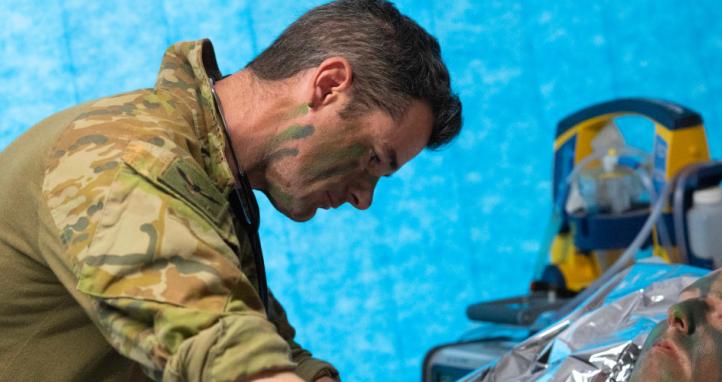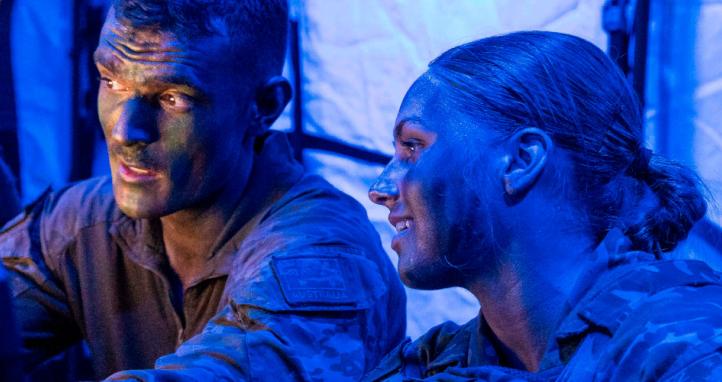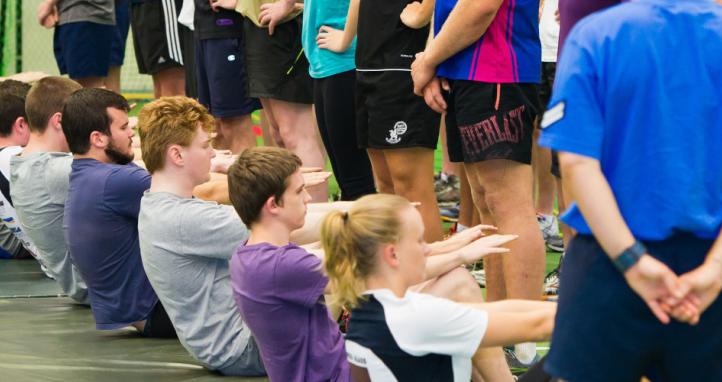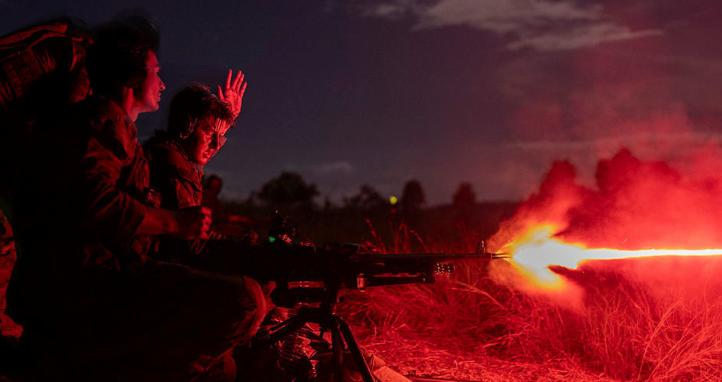Adapting Army Podcast – Brought to you by Land Capability Division
The 'Adapting Army' podcast invites visionary leaders from Army, Defence, industry, and academia to share their stories and insights to explore how Army can adapt through people, partnerships, and innovation. Join us as we examine how Army can drive change, harness disruptive technology, and take advantage of the exciting possibilities that will shape our preparedness and capabilities to meet the challenges ahead.
Episodes

Adapting Army – What does successful failure look like in an adapting Army? COL Robin Smith
Episode 1 of the ‘Adapting Army’ podcast features Colonel Robin Smith, who is leading Army's exploration of emerging and disruptive technologies. As a young 18-year-old, Robin joined the British Army in 1987 as an electrical technician. After 30-years of service, Robin transferred to the Australian Army into Future Land Warfare branch where he wrote Army's first strategy on robotic and autonomous systems, known as the RAS Strategy. The Strategy was published in 2018 and supported the formation of an exploration and implementation office within the Australian Army. Five years on, Robin and his team have supported a number of projects across robotics and autonomous systems, artificial intelligence, alternative power and energy, quantum technology and innovation culture.

Adapting Army – How will artificial intelligence change our approach to conflict? LTCOL Adam Hepworth & Emily Hughes
Episode 2 of Adapting Army feature Director of Phantom Works Global Boeing, Emily Hughes, who leads a dedicated team specialising in mission systems, advanced simulation, modelling and analytics. This episode also features LTCOL Adam Hepworth, Australian Army's lead on artificial intelligence. Adam's portfolio includes human-cognitive augmentation, autonomous systems, AI-enabled decision making, and human-machine teaming and swarming. During our conversation we explore how AI is redefining the role of soldiers in combat, a few current AI use-cases, and look to the future, imagining the art of the possible.

Adapting Army – Why is change hard? COL Jennifer Harris & Dr Rebecca Jackson
Episode 3 of the Adapting Army podcast features Colonel Jennifer Harris, who is regarded as one of Army’s agents of change. Jen has led a diverse career and is currently working in Army’s Land Capability Division, and has held previous roles in the total workforce system, as well as a project management position at Questacon. One common thread between these roles is the demand for change.
We are also joined by Dr Bec Jackson. In her work as a psychologist and leadership development practitioner, Bec has successfully coached hundreds of leaders in the military, government, and public space to enhance and develop their capacity, commitment, and character to lead their teams and organisations into the future.
The conversation delves into the challenges of change, sharing insights of what good leadership looks like, whether change management is really that important, and how optimism may be more valuable to an organisation than we realise.

Adapting Army – How could Army gain and maintain a quantum advantage? LTCOL Marcus Doherty, Prof Brant Gibson & Dr Richard Taylor
Episode 4 of the Adapting Army podcast features three of Australia’s leading quantum technologists – Lieutenant Colonel Marcus Doherty, Professor Brant Gibson and Dr Richard Taylor.
Marcus leads Army’s exploration of quantum technology, is an esteemed senior fellow at the Australian National University and is the co-founder of Quantum Brilliance... as well as being an Army officer. Marcus has brought a huge depth of knowledge to Army and pioneered the Quantum Technology Challenge and Quantum Next Generation Challenge series, supporting partnerships between sovereign quantum technologists and Army.
Professor Brant Gibson is currently in the joint roles of Assistant Associate Dean (Physics, RMIT University), Deputy Director of the Australian Research Council Centre of Excellence for Nanoscale BioPhotonics and Deputy Director of the Sir Lawrence Wackett Centre for Defence at RMIT University.
Dr Richard Taylor is an Assistant Professor at the School of Electrical Engineering and Robotics within the Queensland University of Technology. His research is focused on Applied Superconductivity in the fields of power, communications and instrumentation.
During the conversation, we explore how Army and academia are collaborating to give Army the edge it needs in the critically important field of quantum technology.

Adapting Army – What is Army's approach to innovation? WO Kim Felmingham, NSC, OAM & Jasmine Kastaniotis
Episode 5 of the Adapting Army podcast features Army’s highest-ranking soldier, Army Regimental Sergeant-Major, Warrant Officer Kim Felmingham who has long championed the importance of an innovation culture among Army. We are also joined by Jasmine Kastaniotis from the Army Makerspace program. Jasmine is leading Army’s uptake of learning-by-doing and educating using innovative approaches, creative thinking, and agile methodologies.
During the conversation, the pair discuss what innovation means to Army, uncover what stifles innovation, and explore the creative approaches and concepts emerging from Army MakerSpace.
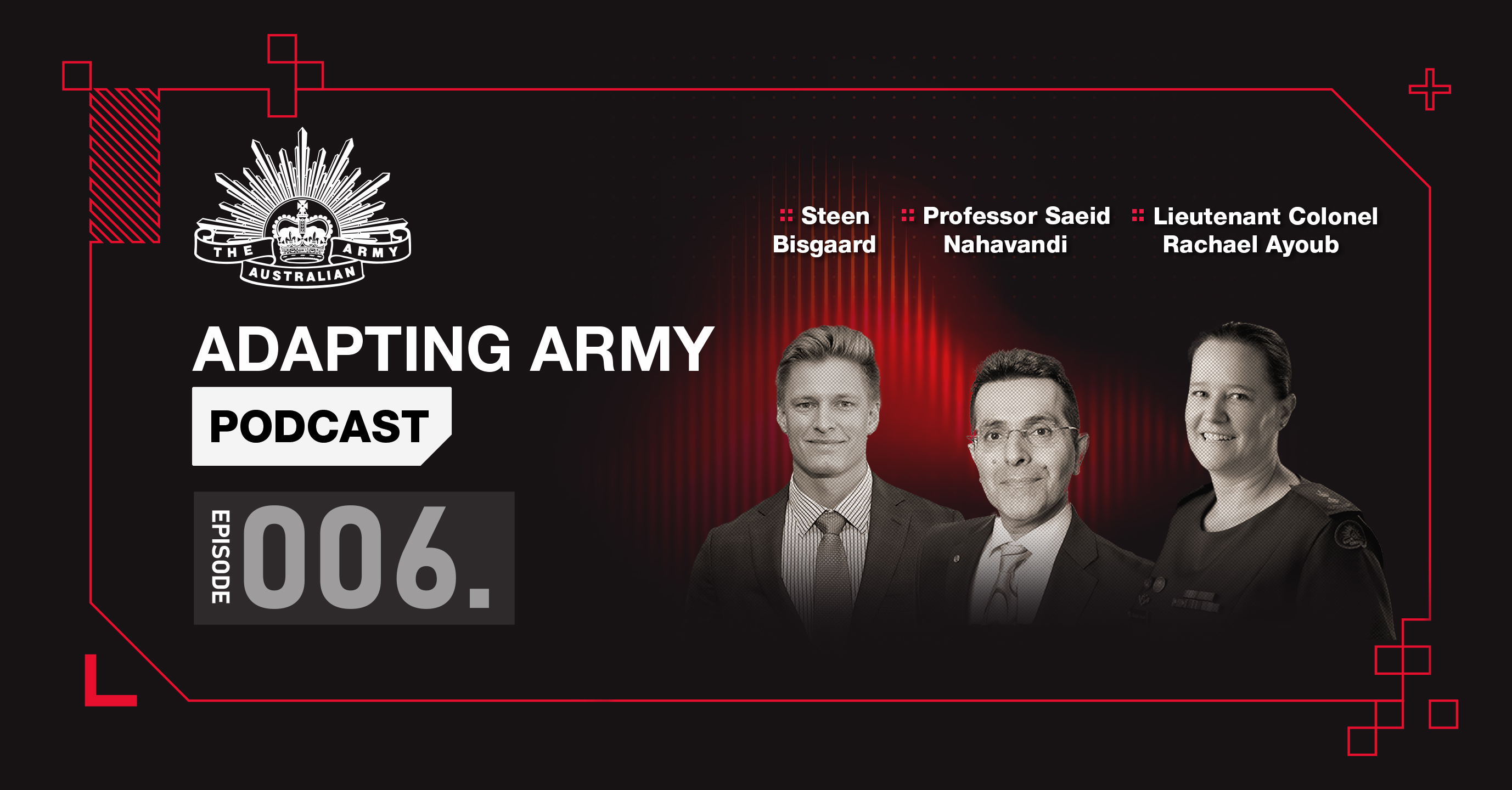
Adapting Army – What opportunity does autonomy bring in the Land Domain? LTCOL Rachel Ayoub, Dr Saeid Nahavandi & Steen Bisgard
Episode 6 of the Adapting Army podcast features three exceptional leaders representing Army, industry and academia. Lieutenant Colonel Rachael Ayoub is leading Army’s exploration of autonomous systems.
We are also joined by Swinburne University of Technology’s inaugural Associate Deputy Vice-Chancellor Research and Chief of Defence Innovation, Distinguished Professor Saeid Nahavandi. Saied was the founding Director of the Institute for Intelligent Systems Research and Innovation, Deakin University and has worked closely with Army to develop the Leader-Follower autonomous vehicle convoy.
Our last guest, Steen Bisgaard, is the founding director of Gaardtech, a sovereign company specialising in autonomous ground vehicles. Army has been exploring the use of land autonomy with Steen and his team over the past two years.
Join us as we see just how far autonomous systems have come, and what Army, industry and academia are looking to in the not-too-distant future in how autonomous systems can not only improve day to day life, but also protect it.
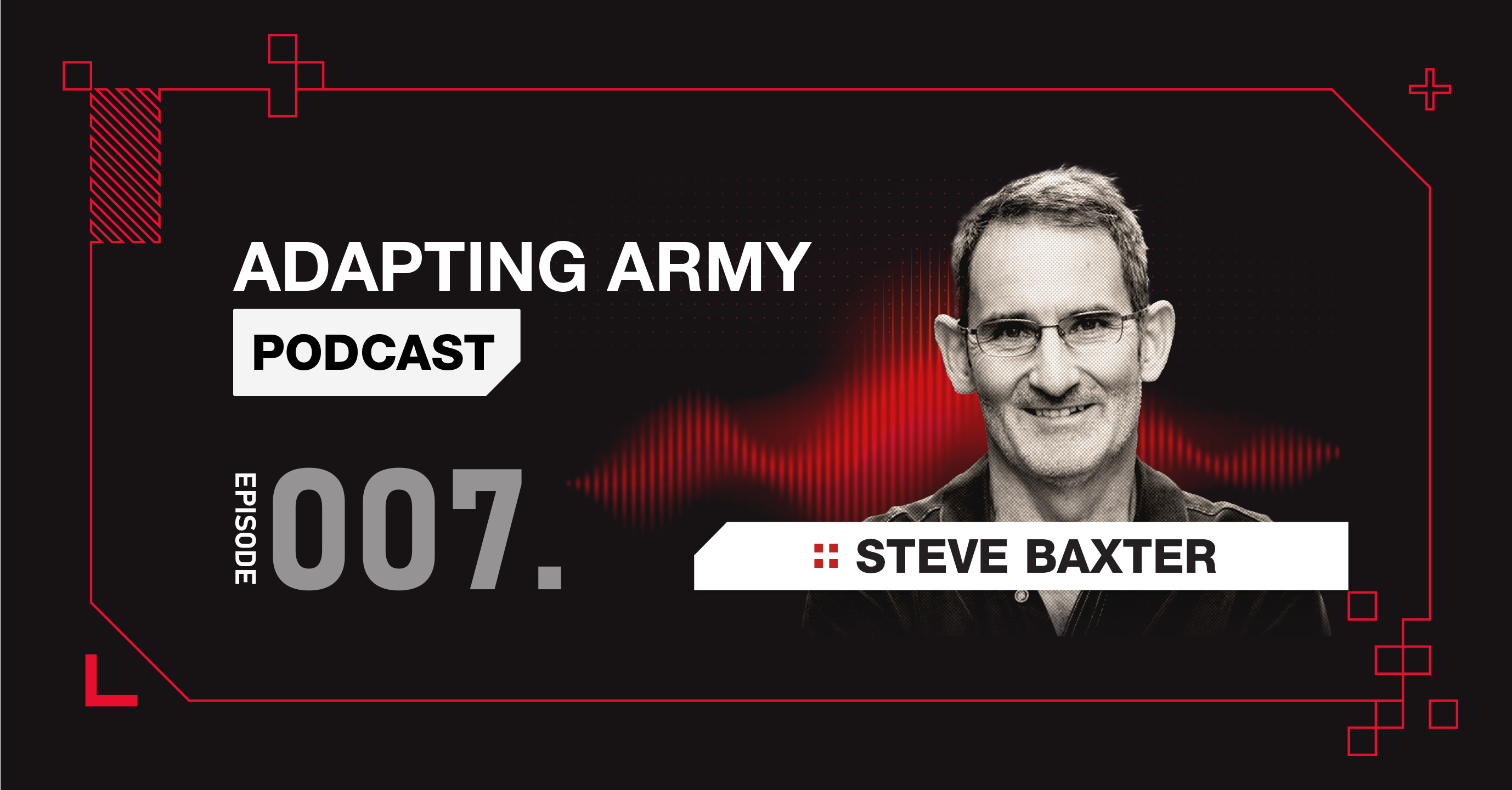
Adapting Army – Why is capability investment important? Steve Baxter
Ep 7 of Adapting Army features Steve Baxter, who is an Australian entrepreneur, veteran and previously a shark on Australian Shark Tank.
At the age of 15, Steve joined the Army, enlisting in its apprenticeship program. He became a technician working in the field of electronics, telecoms and guided weapon systems. In 1994, at the age of 23, Steve launched his first start-up, the pioneering internet service provider SE Net, from his spare room.
Steve is now the Co-founder and Executive Chairman of TEN13, Australia’s leading tech start-up investment platform, and Founder and Lead Investor with Beaten Zone Venture Partners which is dedicated to early-stage investments in Australian sovereign legal defence technology.
In this episode, Steve lends his experience as a successful entrepreneur and shares his observations regarding capability investment across the Defence Force.
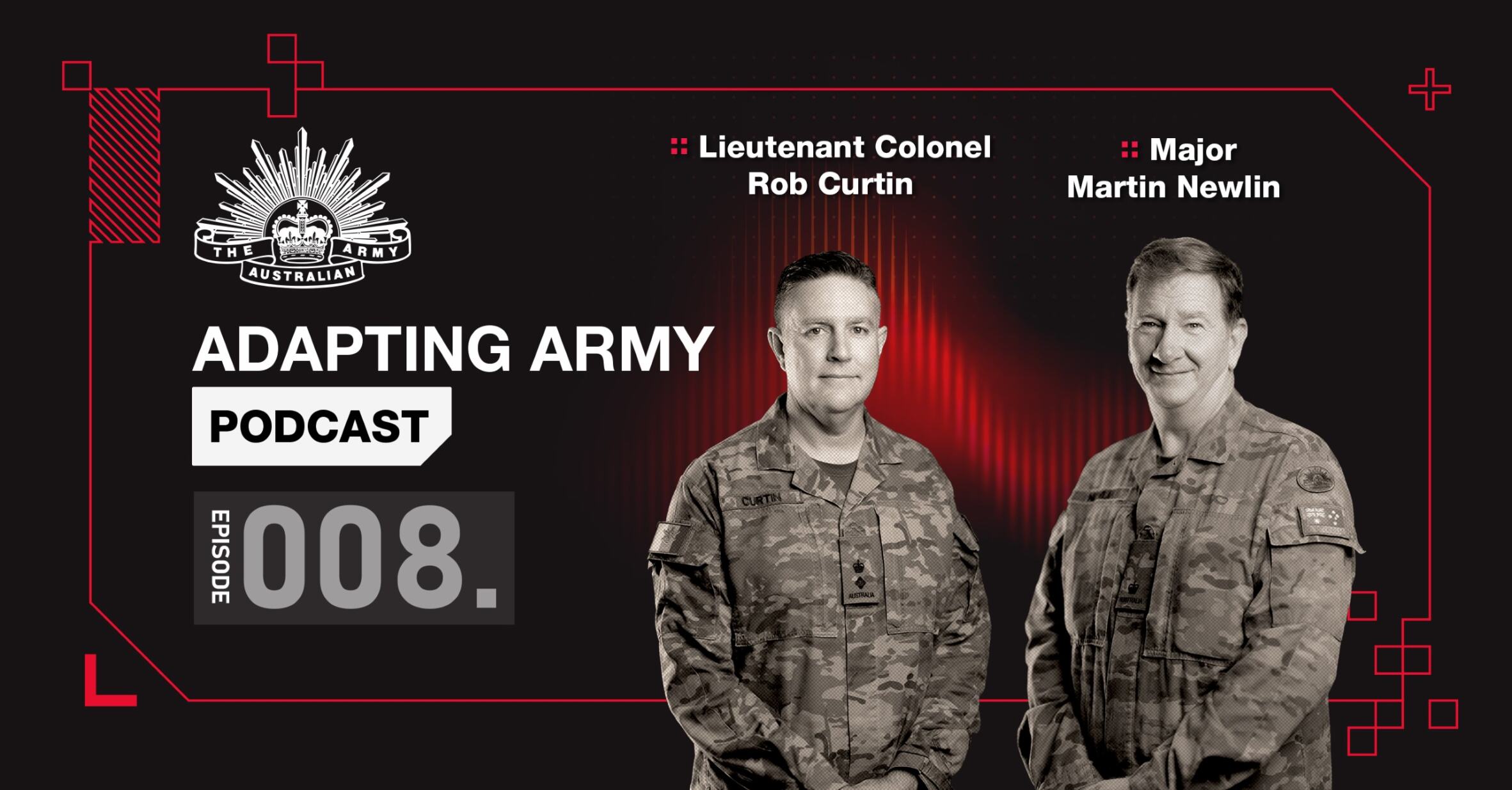
Adapting Army - Can flexibility increase Army retention?
1 in 5 Army positions are currently vacant and for many, a more flexible way to work is becoming a higher priority. ServeOn is a new Army initiative finding flexible roles for service categories (SERCAT) 2 members, inactive SERCAT 3 members, and members wishing to leave full-time service. The greater flexibility is allowing members to spend more time at home or with their families, study, or pursue a civilian career, all while continuing to serve.
In Episode 8, we’re joined by a member of the ServeOn community, Major Martin Newlin, who shares his story of running a farm, while also continuing to serve. We are also joined by Lieutenant Colonel Rob Curtin, who has led the ServeOn initiative upon his return to service after 10 years in industry. He has been able to inspire more members to re-engage with Army in a new, more flexible capacity.
Find out more: https://www.army.gov.au/
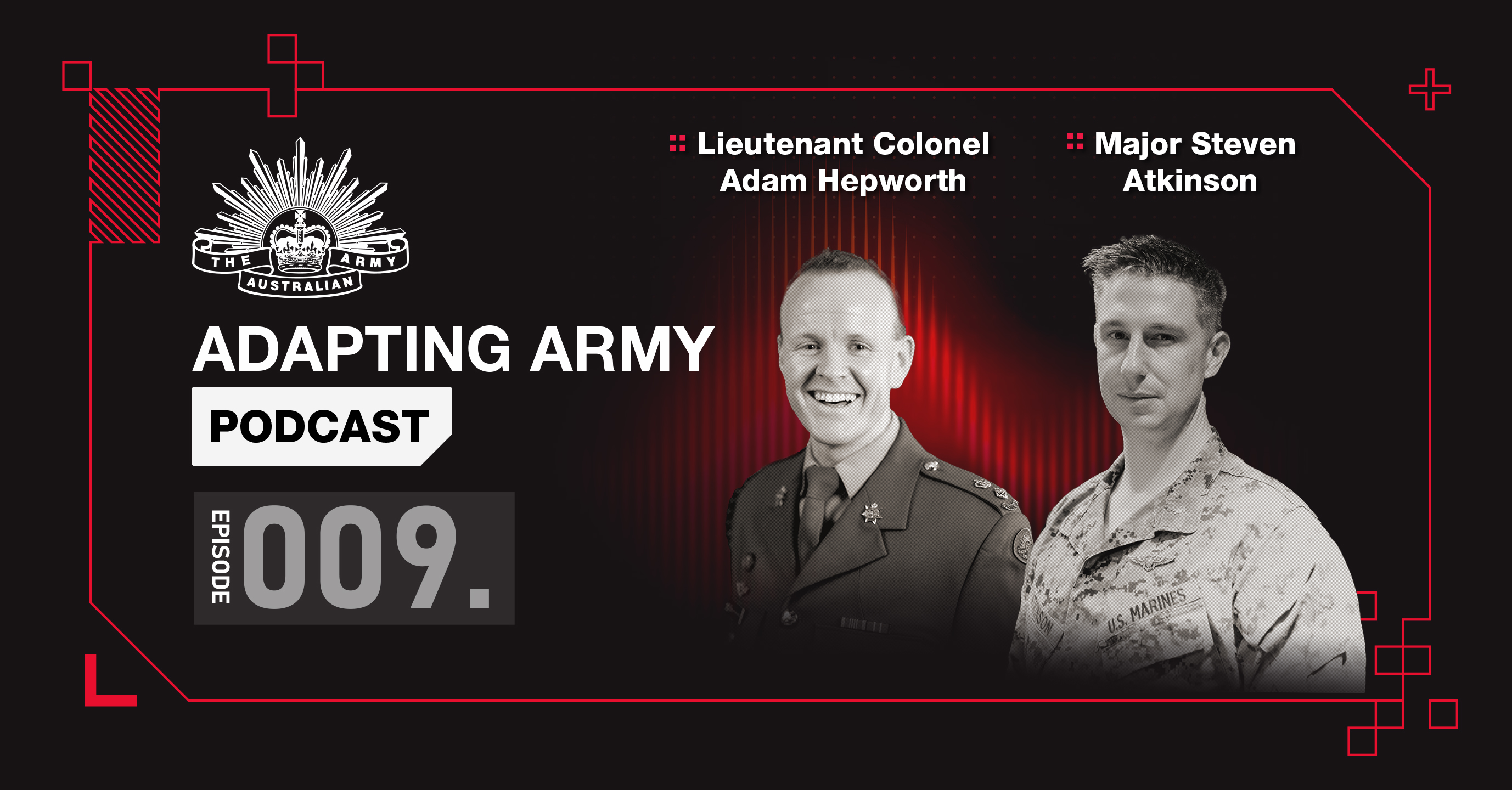
Adapting Army – Accelerating technology, together. United States Marine Corps and Australian Army.
Where is artificial intelligence going? How do we empower our workforce to embrace and use new capabilities? How can we best leverage the resources we have?
These are some of the questions the Australian Army and the United States Marine Corps are working together to solve.
In today’s episode we are joined by Major Steven (Spike) Atkinson from the Marine Corps Warfighting Lab, who is leading the Robotic, Autonomy and Artificial Intelligence branch in the United States. Lieutenant Colonel Adam Hepworth has returned for another episode, sharing his insights from the Robotic and Autonomous Systems Implementation and Coordination Office.
In our discussion, you’ll hear how the United States Marine Corps, and the Australian Army are approaching emerging technology, together. Highlighting the importance of information exchange and shared experimentation to identify capability gaps, integrate technology, and leverage shared opportunities.
To hear more how Army is adapting, subscribe to The Cove via Apple Podcasts or Spotify.
 Military Ethics.jpg)
Adapting Army – Ethical and legal considerations of emerging military technology
Can we trust autonomous systems? Are our laws and policies keeping pace with emerging technology? Who is accountable for the actions of an uncrewed or autonomous system?
In this episode of the Adapting Army Podcast, were joined by Colonel Damian Copeland, the Director of Operations and International Law, Department of Defence. Damian has immense experience in the legal review of weapons, specifically weapons and systems enhanced by Artificial Intelligence. We’re also joined by Dr Zena Assaad, who is a fellow with the Australian Trusted Autonomous Systems Defence Cooperative Research Centre and the Australian National University. Zena has made fundamental contributions to inform Army’s understanding of the paradigm between trust and autonomous systems.
Our guests discuss accountability and control, the laws that guide uncrewed and autonomous technology and explore trusted systems, highlighting an international example where an autonomous system didn't perform as expected and how that impacted public trust.
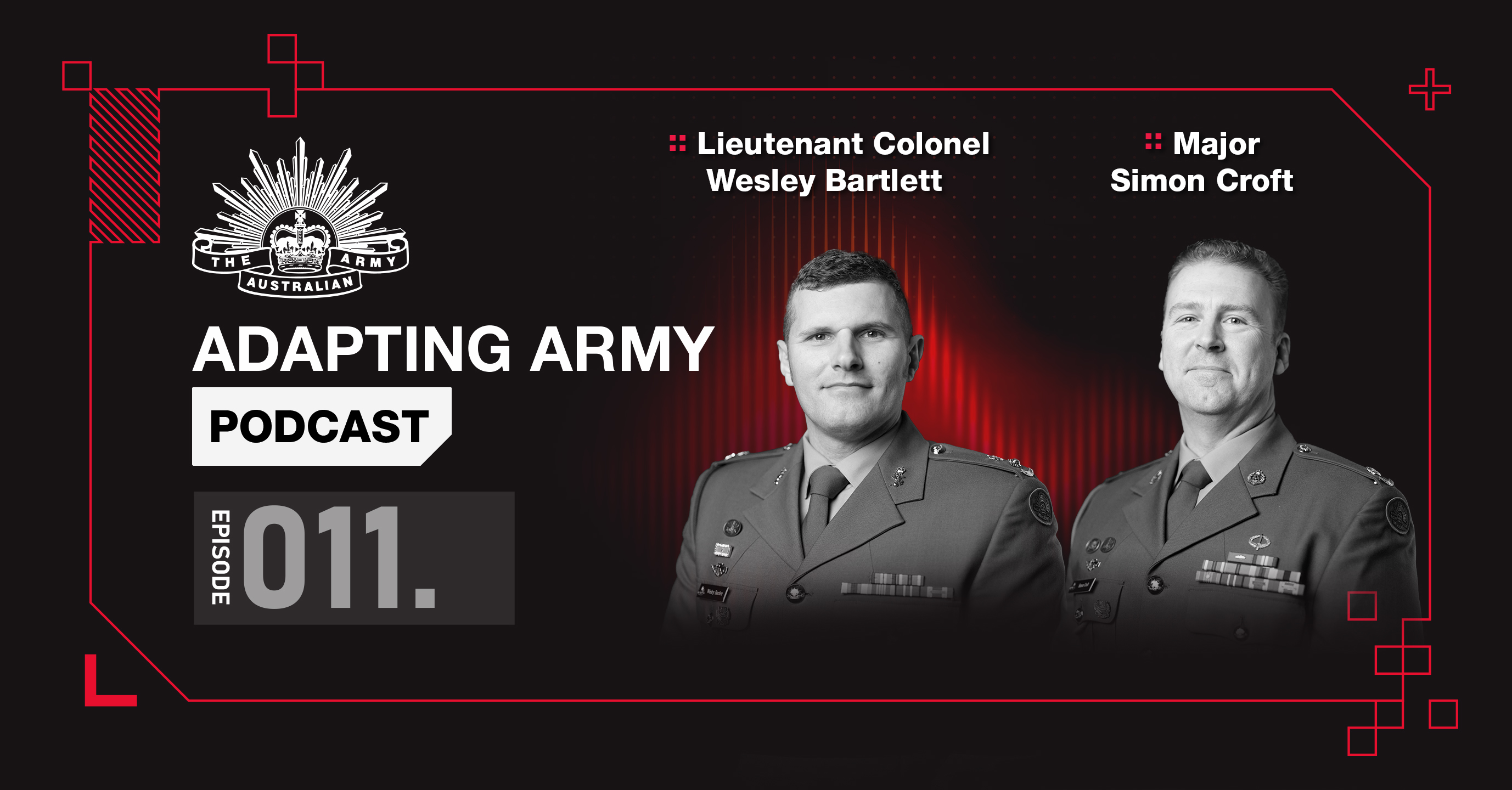
Adapting Army – Land Force Design
What will warfare look like in ten, twenty or even thirty years? How will new technologies fundamentally change the character of warfare? What is the future role of land power within the integrated force?
These are some of the questions the Australian Army’s Land Force Design team question daily to inform and design concepts.
Just like building a house, you would never proceed without a set of plans. For Army, planning how to respond to an ever-evolving threat requires vigorous, considered and innovative planning.
In this episode of the Adapting Army Podcast Lieutenant Colonel Wesley Bartlett, Lead, Land Concepts and Major Simon Croft, SO2 Land Concepts at Land Force Design discuss what drives concepts and how they’re designed, trialled and tested.
Resources: Five Ideas: On writing Australian Defence Force concepts | The Cove (army.gov.au)
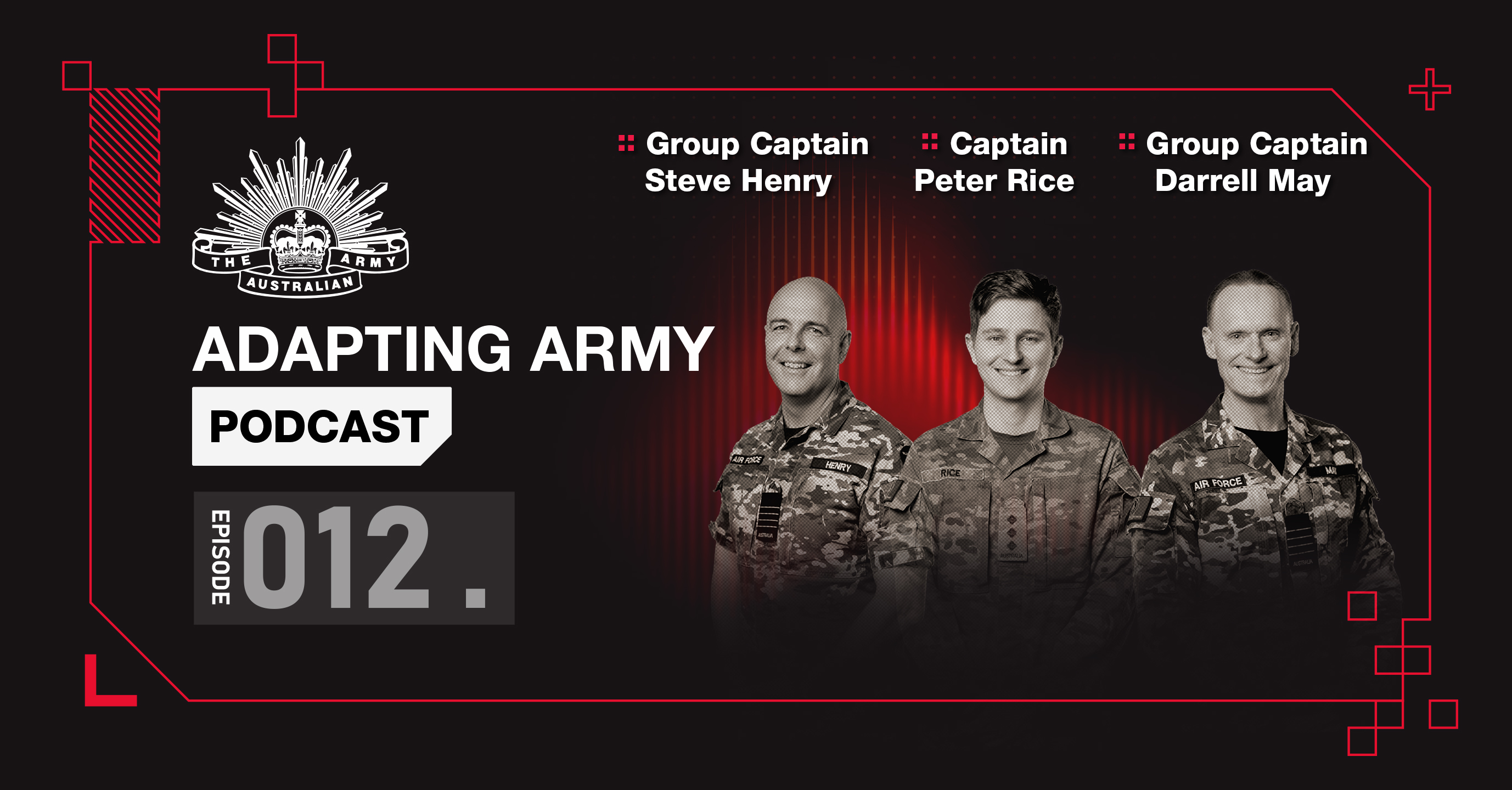
Adapting Army – Why is space critical for the Australian Army?
Have you ever considered the importance of Space in the context of Defence?
From communications to traffic management – entire systems and societies are reliant on space. Losing access to space has the potential to impose significant military consequences with Army, Navy and Air Force reliant on space-based communications, intelligence and navigation.
Space Command was formed in early 2022 to prepare space power to secure Australia’s interests in competition and conflict. Space Command is only in its infancy, so much so that Space wasn’t considered a Domain when all three guests of this podcast joined the Australian Defence Force.
In this episode of the Adapting Army podcast, we’re joined by Group Captain Steve Henry, Group Captain Darrell May and Captain Peter Rice from Space Command.
Our panel unpack how Space Command is contributing to the integrated force, the role space plays in National Defence and what a career is space is actually like.
While you can’t join up as a ‘Space Officer’ right now, you can gain entry into the space workforce through the existing services – Army, Air Force and Navy, as well as a variety APS and contractor roles. For more information, contact ADF Careers.
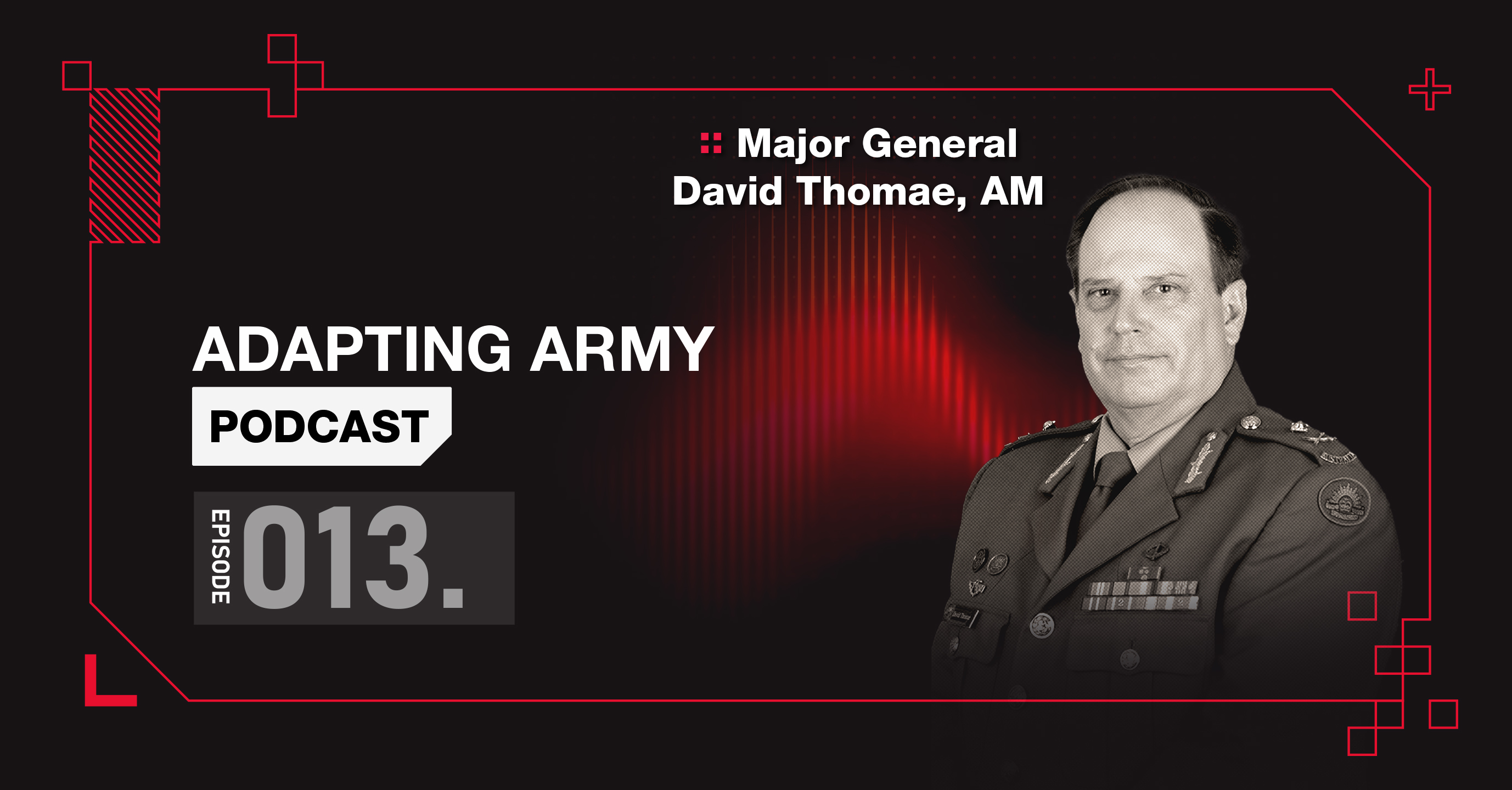
Adapting Army - Adapting 2nd Division
2nd Division has a clear role: protect Australia.
In 2022 the Division was raised as an independent functional command to increase Army’s responsiveness, resilience and ability to scale to support the integrated force.
Comprised of predominantly part-time personnel – the Division is leveraging the diverse expertise of the reserve workforce and exploring opportunities to increase preparedness through a new focused training model.
Defending Australia and protecting our national interests is an important task - one that the Commander of 2nd Division, Major General Thomae doesn’t take lightly.
In this episode of the Adapting Army Podcast we’re joined by Major General David Thomae, who is leading the Division’s adaptation to protect Australia.
Join the Army Reserves - Army Reserve - ADF Careers






